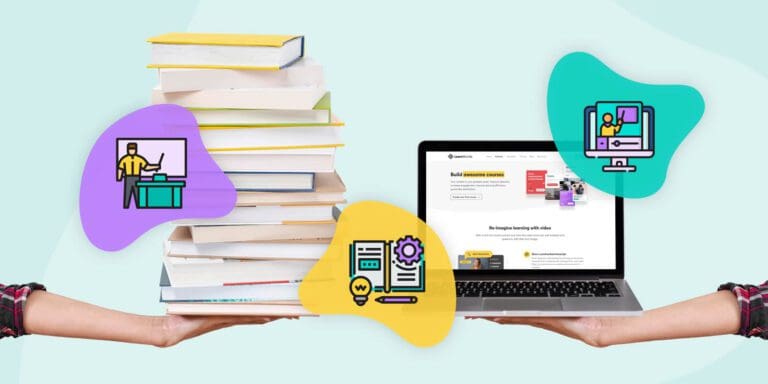Early Childhood Education: A Guide for Parents and Educators
Importance of early childhood education
During the early years of a child’s life, they go through a crucial stage of development that affects their physical, emotional, cognitive, and social growth. This is why early childhood education plays a crucial role in shaping their future success in both school and life.
Studies have shown that children who attend high-quality early childhood education programs perform better academically, are more socially skilled, and earn more money as adults.
One of the benefits of early childhood education is that it provides a secure and nurturing environment for children to learn and explore the world around them. This education helps children develop critical thinking, problem-solving, and creativity skills. Furthermore, by exposing children to a wide range of experiences, early childhood education fosters their curiosity and love for learning.
What is early childhood education?
Early childhood education refers to the education that young children receive before they start formal schooling. This type of education focuses on developing children’s cognitive, emotional, social, and physical skills. Early childhood education is crucial as it lays the foundation for future learning and success, significantly impacting a child’s development.
Different approaches to early childhood education exist, including Montessori, Reggio Emilia, Waldorf, Play-based, and Vygotsky’s sociocultural learning theory. Each approach has its unique philosophy, curriculum, and teaching methods that reflect different perspectives on child development and learning.
Parents and educators need to understand the strengths and limitations of each approach to make informed decisions about what is best for their children.
Montessori education is based on the belief that children are naturally curious and self-directed learners who thrive in a prepared environment that fosters independence, concentration, and self-discipline. This approach emphasizes individualized education, hands-on materials, mixed-age groupings, child-led exploration, and discovery.
Reggio Emilia’s education emphasizes child-led learning and creativity through art and other creative activities. This approach strongly focuses on community and collaboration, with the teacher acting as a co-learner and collaborator with the children. Documentation and reflection are also used to support learning.
Waldorf education focuses on the child’s holistic development through storytelling, puppetry, and other imaginative activities. This approach strongly focuses on the arts, including music, dance, and visual arts, and uses nature and the outdoors as a learning environment. The teacher acts as a model and guide for the child’s development.
Play-based education emphasizes learning through play and exploration, emphasizing social-emotional development and building relationships. Child-led learning and exploration are emphasized. Open-ended materials promote creativity and imagination; the teacher acts as a facilitator and guide rather than a traditional authority figure.
Vygotsky’s socio-cultural learning theory emphasizes social interaction and collaboration in learning, believing that education, cultural, and social factors influence learning. Scaffolding supports learning and development, focusing on the zone of proximal development. The teacher acts as a facilitator and guide for learning and development.
Critical Aspects of Early Childhood Education
It is crucial for educators and parents to understand the developmental stages of children in early childhood education. These stages affect learning in various ways, including social-emotional, cognitive, language, and physical development.
Social-emotional development involves a child’s ability to form relationships, regulate emotions, and develop self-awareness. Educators and parents can support this development by creating a safe and nurturing environment, modeling positive behaviors, and helping children develop social skills.
Cognitive development refers to a child’s thinking, reasoning, and problem-solving ability. Children’s mental story progresses through different stages, influenced by experiences and environmental interactions. Educators can support cognitive development by providing appropriate activities encouraging exploration, experimentation, and problem-solving.
Language development involves a child’s ability to communicate effectively with others, understand language, and develop literacy skills. Early childhood educators can support language development by providing opportunities for children to engage in meaningful conversations, read and write, and participate in language-rich activities.
Physical development refers to a child’s gross and fine motor skills, which are critical for daily activities such as walking, running, and manipulating objects. Early childhood educators can support physical development by providing opportunities for children to engage in physical activities such as outdoor play, sports, and movement-based exercises.
What is the difference between early childhood education and preschool?
Early childhood education and preschool have some similarities, but they are not the same thing. Early childhood education is a broader term that covers a range of programs and approaches for children from birth to around age 8, including preschool, nursery school, kindergarten, and early elementary grades. The main goal of early childhood education is to support the healthy development of young children and prepare them for success in academics and social life. This is accomplished through a variety of structured learning activities, play-based experiences, and social interactions that encourage cognitive, emotional, and social growth.
Preschool, on the other hand, is a specific type of early childhood education program designed for children between the ages of 3 and 5 years old. The primary focus of preschool is to provide a play-based, early learning environment that helps children prepare for the transition to kindergarten and elementary school. While preschool is a part of early childhood education, early childhood education goes beyond preschool and includes other critical stages of a child’s development up to around age 8.
To sum up, preschool is a program within the broader category of early childhood education, with the specific goal of preparing young children for kindergarten and beyond, while early childhood education encompasses a range of programs and approaches that support the healthy development of young children.
Role of Families in Early Childhood Education
Families have a crucial role to play in their children’s early education. As primary caregivers, parents are the first ones to create a nurturing environment that supports their children’s development. They can also work alongside early childhood educators to provide a seamless learning experience for their children.
Parents can aid their children’s learning by encouraging reading, engaging them in meaningful conversations, offering opportunities to explore their interests, and cultivating a positive home environment. They can also communicate regularly with their children’s educators to share information about their children’s progress and work together to create strategies that support their children’s learning.
Role of Learners in Early Childhood Education
Children are actively involved in their learning, and their interests, curiosity, and experiences significantly impact their learning paths. Early childhood educators should create a learning environment that encourages children’s curiosity, fosters exploration, and builds on their strengths and interests. In early childhood education, learners need to be involved in hands-on activities, critical thinking, and problem-solving. They should be able to work with their peers, express their ideas, and learn through play. Early childhood educators should also support children’s social and emotional development by promoting positive relationships, empathy, and self-regulation.
Teacher Training
Teacher training is essential for ensuring that pre-primary education is of high quality. Well-trained and qualified teachers are better equipped to meet the diverse needs of their students, creating a positive learning environment for all. Teacher training programs should prioritize developing subject-specific knowledge and teaching methods appropriate for young children. By prioritizing teacher training, we can ensure that children receive the best possible education during this critical stage of development.
Early Childhood Education Degree Online
By pursuing an online degree in early childhood education, students can gain the necessary skills and knowledge to work with young children in various educational settings, including preschools, childcare centers, and elementary schools. Through a combination of coursework and practical experience, students will learn how to foster the healthy development of young children, create engaging learning environments, and involve families and communities in the education process.
An online program in early childhood education is a flexible and convenient option for individuals with work or family commitments without sacrificing the quality of education provided in traditional on-campus programs. Graduates will be well-prepared to positively impact the lives of young children and their families.
Below are the links to the online degree programs for early childhood education in the US, West Europe, and Middle Asia that I mentioned earlier:
- United States:
- University of Cincinnati: Online Bachelor of Science in Early Childhood Education
- Walden University: Online Bachelor of Science in Early Childhood Studies – https://www.waldenu.edu/online-bachelors-programs/bs-in-early-childhood-studies
- Purdue University Global: Online Bachelor of Science in Early Childhood Administration
- The University of Nebraska Kearney: Online Master of Science in Education in Early Childhood Inclusive Education
- University of Dayton: Online Master of Science in Education in Early Childhood Leadership and Advocacy
- West Europe:
- University of Roehampton: Online Master of Arts in Early Childhood Education
- University of Sheffield: Online Master of Education in Early Childhood Education
- University College London: Online Master of Education in Early Years Education
- Middle Asia:
- Istanbul Aydin University, Turkey: Online Bachelor of Science in Early Childhood Education
- United Arab Emirates University: Bachelor of Education in Early Childhood Education
Early Childhood Education Salary
The salary for early childhood education professionals can vary depending on several factors, such as location, level of education, years of experience, and job responsibilities. According to the U.S. Bureau of Labor Statistics, the median annual wage for preschool teachers was $31,930 as of May 2020. The lowest 10 percent earned less than $21,140, and the highest 10 percent earned more than $57,910.
Childcare workers, who may work in settings such as daycare centers and preschools, earned a median annual wage of $25,460 as of May 2020, with the lowest 10 percent earning less than $18,320 and the highest 10 percent earning more than $39,940.
Administrative roles in early childhood education, such as preschool and childcare center directors, earned a median annual wage of $49,160 as of May 2020. The lowest 10 percent earned less than $28,730, and the highest 10 percent earned more than $97,410.
It’s important to note that salaries can vary significantly based on geographic location and the type and size of the early childhood education setting. Additionally, those with higher levels of education, such as a bachelor’s or master’s degree, may earn higher salaries in the field.
Below is a table comparing the median annual salary data for professionals in the US, West Europe, and Middle Asia:
| US | West Europe | Middle Asia | |
| Preschool Teacher | $31,930 | $33,860 | $3,000 – $10,000* |
| Childcare Worker | $25,460 | $20,000 – $30,000** | $2,400 – $4,800* |
| Preschool/Childcare Center Director | $49,160 | $55,000 – $80,000*** | $7,200 – $16,800* |
*Note: Median annual salary data for Middle Asia is not readily available, so these figures are approximate based on reported average monthly salaries converted to US dollars.
**Note: Median annual salary data for childcare workers in West Europe is not readily available, so these figures are approximate based on reported average monthly salaries converted to US dollars.
***Note: Median annual salary data for West Europe preschool/childcare center directors is not readily available, so these figures are approximate based on reported average annual salaries converted to US dollars.
Early Childhood Special Education
Special education is an educational program that focuses on helping children with developmental delays, disabilities, or special needs between the ages of birth and five years old. The program is designed to provide individualized learning programs tailored to meet each child’s specific needs and abilities. The ultimate goal of this program is to help children reach their full potential by providing them with the necessary therapies, specialized instruction, and support services to develop important skills such as communication, social interaction, and self-help.
Additionally, this program also provides support and resources for families and caregivers to help them better understand and meet the needs of their children.
Below are some examples of special education services and resources:
- Early Intervention: Early Intervention is a federal program that provides support services to infants and toddlers with developmental delays or disabilities. Services may include physical therapy, occupational therapy, speech therapy, and other specialized services. You can find more information on the Early Intervention Program at the U.S. Department of Education website: https://www2.ed.gov/programs/osepeip/index.html
- Head Start: Head Start is a federally funded program that provides comprehensive early childhood education and development services to low-income families with children ages birth to five. Services include education, health, nutrition, and family support. You can learn more about Head Start at their official website: https://www.acf.hhs.gov/ohs
- National Center for Learning Disabilities (NCLD): NCLD is an organization that provides resources and support to children and families with learning disabilities, including special education services. You can find more information on their website: https://www.ncld.org/
- Autism Speaks: Autism Speaks is an advocacy organization that provides resources and support for families and individuals with an autism spectrum disorder. Their website includes information on early childhood intervention services and resources for families: https://www.autismspeaks.org/early-intervention
- The Early Childhood Technical Assistance Center (ECTA): ECTA is a national technical assistance center that provides resources and support for special education programs and professionals. Their website includes information on evidence-based practices, policies and regulations, and professional development opportunities: https://ectacenter.org/
Professional Designations in Early Childhood Education
In the field of early childhood education, specialized knowledge and skills are required to provide high-quality care and education for young children. There are different professional designations, including Early Childhood Educator (ECE), Child Development Associate (CDA), and Certified Montessori Teacher (CMT). Each designation has its requirements, qualifications, and scope of practice. Professionals in early childhood education with a designation have expertise in child development, curriculum planning, guidance, and assessment. They are also committed to ethical standards and engage in ongoing professional development to maintain their designation.

Improving Pre-Primary Education
Early education is an important stage in a child’s growth and development, setting the groundwork for future academic success. Children acquire fundamental skills such as reading, writing, and basic math during this stage. Quality early education focuses on developing these skills and encourages social and emotional growth. However, improving early education’s curriculum and teaching methods is important to ensure children receive a high-quality education.
Fostering Children’s Skills in Early Childhood Education
To improve pre-primary education, it is crucial to have quality curricula. The curricula should be appropriate for the children’s development, inclusive of diverse cultures, and cater to their social and emotional growth. Children will acquire the necessary knowledge and skills to succeed academically by providing a well-rounded education that addresses their diverse needs.
Having quality curricula in pre-primary education is important for children’s growth in the early years. Both age-appropriate and stimulating curricula help children acquire the necessary skills to excel in school and beyond. These curricula support children’s cognitive, social, and emotional development, laying the groundwork for their future academic success.
Using appropriate curricula for a child’s development is crucial when promoting their skills in early childhood education. Curricula that align with a child’s developmental needs and abilities enable them to learn skills in an engaging and supportive environment. Children receive a well-rounded education that meets their diverse needs when age-appropriate curricula are appropriate. This helps them acquire the skills and knowledge needed to excel academically and beyond.
Ensuring Equitable Access to Quality Pre-Primary Education
Access to quality pre-primary education is very important for children’s academic, social, and emotional development. However, children from low-income families, those with disabilities, and children from marginalized communities often face obstacles to accessing quality pre-primary education. To guarantee equal access, policymakers must allocate resources and support to pre-primary education in underserved communities, prioritizing the needs of learners and encouraging inclusive and culturally responsive curricula.
Creating Engaging and Inclusive Curricula
To promote children’s skills in early childhood education, it is important to have engaging and inclusive curricula. Children are more likely to learn and retain knowledge when they are excited and interested in what they are learning. Inclusive curricula ensure that all children have access to high-quality education regardless of their background or circumstances. This is important because every child deserves a chance to succeed. By creating engaging and inclusive curricula, we can help children develop their skills in a supportive and challenging environment.
Children can thrive and develop their social, emotional, cognitive, and physical skills when curricula are age-appropriate, engaging, and inclusive. We must prioritize the needs of children and provide them with the high-quality education they need to succeed academically and beyond.
Opportunities for Innovation
To improve pre-primary education, it is important to embrace innovation. Innovative teaching and learning methods can help to engage children and promote their development in exciting and new ways. Opportunities for innovation can include using technology, creative teaching methods, and interdisciplinary approaches to learning. By embracing innovation, we can create an enjoyable and challenging learning environment for children.
The Role of Play in Learning
Playing is a crucial part of educating young children. It allows them to explore, experiment, and uncover new things. Children develop important skills such as problem-solving, creativity, and critical thinking through play. It’s important for play-based learning to be integrated into the curriculum to provide children with hands-on, experiential activities that aid their learning.
Research has been conducted on early childhood education, and the results have emphasized the significance of early education in a child’s overall development and future success. Some of the research findings include:
- The HighScope Perry Preschool Study: This study, conducted in the 1960s, followed a group of low-income children who received high-quality preschool education. The results showed that these children were more likely to graduate from high school, attend college, and have higher earnings as adults.
- Abecedarian Project: This study, conducted in the 1970s, provided early childhood education and cared to low-income children from birth through age 5. The results showed that these children had higher IQ scores, were more likely to attend college, and had higher earnings as adults.
- The Carolina Abecedarian Project: This study, conducted in the 1970s, provided early childhood education and cared for low-income children from birth through age 5. The results showed that these children had higher cognitive scores, were less likely to be held back in school, and had lower rates of criminal behavior than adults.
- The Head Start Impact Study: This study, conducted in 2010, evaluated the impact of Head Start, a federally funded early childhood education program, on children’s cognitive and socio-emotional development. The results showed that children who participated in Head Start had higher cognitive scores and were more likely to be ready for school than those who did not.
- The Chicago Longitudinal Study: This study, conducted in the 1980s, followed a group of low-income children who received high-quality preschool education. The results showed that these children had higher academic achievement, were less likely to repeat grades, and had higher graduation rates than those who did not receive early childhood education.
These research studies demonstrate the importance of early childhood education in promoting children’s overall development and success. They prove that high-quality early childhood education can impact children’s academic and socio-emotional outcomes.
- The National Institute for Early Education Research: https://nieer.org/
- Harvard University’s Center on the Developing Child: https://developingchild.harvard.edu/
- The RAND Corporation’s research on early childhood education: https://www.rand.org/topics/early-childhood-education.html
- The American Educational Research Association’s special interest group on Early Education and Child Development: https://www.aera.net/SIG079/Early-Education-and-Child-Development-SIG
- The National Association for the Education of Young Children’s research page: https://www.naeyc.org/resources/topics/research
Additional Information
Many excellent books about early education provide valuable insights and ideas for parents, educators, and anyone interested in the development of young children. Here are some of the best books about early education:
- “The Power of Play” by David Elkind explores the importance of play in children’s development and learning.
- “How to Talk So Kids Will Listen & Listen So Kids Will Talk” by Adele Faber and Elaine Mazlish: This classic book provides practical advice for parents and educators on effective communication with children.
- “Mind in the Making” by Ellen Galinsky: This book presents seven essential life skills that children need to thrive in today’s world and offers practical tips for helping children develop these skills.
- “The Whole-Brain Child” by Daniel J. Siegel and Tina Payne Bryson: This book explains the science behind children’s brain development and provides strategies for nurturing healthy emotional development.
- “The Montessori Toddler” by Simone Davies: This book offers a practical guide to applying Montessori principles to toddler development and education.
- “The First Six Weeks of School” by Paula Denton: This book provides practical advice for teachers on establishing a positive classroom environment and building strong relationships with students in the first six weeks of the school year.
- “Teach Your Child to Read in 100 Easy Lessons” by Siegfried Engelmann, Phyllis Haddox, and Elaine Bruner: This book offers a step-by-step approach to teaching children to read and has been used successfully by many parents and educators.
- “The Read-Aloud Handbook” by Jim Trelease: This classic book provides valuable insights on the importance of reading aloud to children and offers practical tips for making reading a regular part of family life.
These are just a few examples of the many great books about early education. Whether you are a parent, educator, or simply interested in the development of young children, there is sure to be a book that can help you gain valuable insights and ideas.
Conclusion
Early childhood is a critical period in a child’s life that lays the foundation for their future academic, social, and emotional success. As parents and educators, we are responsible for providing young children with a safe, supportive, and engaging learning environment that promotes their healthy development. By understanding the importance of early childhood education and implementing evidence-based practices, we can help children reach their full potential and set them on a path toward lifelong learning and success. Let us work together to prioritize and invest in early childhood education to benefit our children and society.







